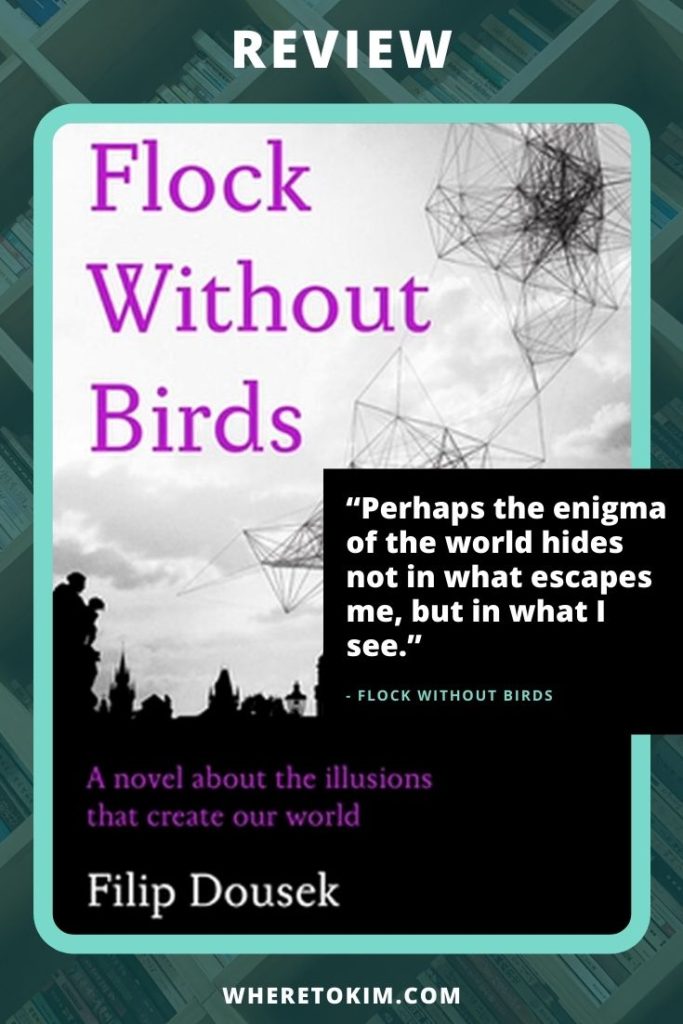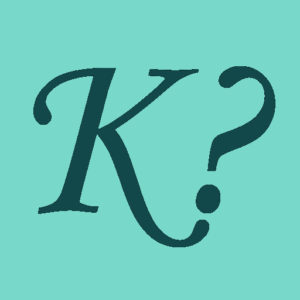Flock Without Birds by Filip Dousek is an intriguing book about the (shattered) illusions that create our world and the possibilities and existences available in our reality.
Location: Cambridge (UK) with trips to London, Prague, Tōhoku (Japan), India
Flock Without Birds synopsis
A genre-bending, mind-altering novel about the illusions that make up our world.
Flock Without Birds comes in two volumes, with neither one first or second – it’s up to the reader to start with the Story or the Book.
In the Story, an aging philosopher tells the tale of the Book – a tale of love that spans centuries, continents, and precious texts. Adam, who will one day write the Book, is a young PhD student torn between love and his obsession – coding an algorithm to sift the world’s data and find God, dead or alive. But a series of mysterious paintings lead him on a winding journey from Cambridge through a Faustian bargain to the edge of reason. Meanwhile in his library, Toito the philosopher calls into question everything there is to believe about Adam – and our world.
The Book – Adam’s journal from a foreign prison – promises to cure the divisions that plague the world. Their root cause isn’t politics, capitalism, race, religion, or media. A deeper layer, obvious and invisible, forms what we think, believe, and do. It shapes our wars and our relationships. Unless we confront these illusions, we will remain slaves to the obvious and lose the greatest freedom – the freedom to create a different world. The code – and the key – is within the human mind. But will Adam himself manage such a feat? Can he escape the prisons of the body and of the mind, and regain his love?
After reading both volumes, Adam’s story – and our society – will look very different in the end. Two tales, separate and intertwined, ask the question: where does the whole end and the part begin? What is a flock without birds?
Book review
If you want to understand a book, does that mean you should read it?
The prologue triggered me immediately. It also made me wish that I could follow more than one path and read both the book and the story first, mix them up or maybe read them at the same time. In the end, I started with the story because that was the first part in the ebook.
In the story, Adam tests his understanding of the world through his relationships with other people, such as his girlfriend Nina whose artistic project turns out to be rather interesting. He searches for universal order with his programming of the Faustomat and goes in search of the Cambridge archives with alumni data to use as human input for calculating karma. But what is he really looking for with this project?
Who is telling the story?
The storyteller is a competent narrator, but who is he? Where does the author end and Adam begin? There are chapters nestled in between that don’t “fit,” mixing another voice with one that is Adam’s. Time and story lines are fluid and so is the boundary between what is inside the story and what is outside it. Flock Without Birds combines many of my interests as it touches on topics such as technology, philosophy, myths, religion, social intelligence, art and science.
“Intuitively, their disparate time and space fractals had to merge in order to thrust the self into a new dimension.”
The possibility of alternate realities weighs heavily on Adam as he considers how hundreds of surrogate infidel Adams crowd the only faithful one. His dilemma makes you think about the things you do and the things you give up. The idea is that even if you do only half of the calculated sum totals of your life, you might avoid boredom. Although you lose all other paths when you choose, the old portraits that fascinate Adam for a long time show that with time come new possibilities.
The many lives not lived remain as unexplored as the many possible stories in Mallarmé’s book Le Livre. It shows that when what you are trying to accomplish has a gigantic scope, it can prevent you from accomplishing smaller parts and you might never deliver anything at all. Even myths are built from smaller tropes. It’s good to dream big and have the audacity to go for the absolute. The elderly version of you is not better than you: he or she has only experienced what you decide to do.
Infinite possibilities
“Perhaps the enigma of the world hides not in what escapes me, but in what I see.”
After the story comes the book, with some deliberate self-reflection and more philosophy. I won’t say more as not to ruin your chance to find out how they go together. I want to reread Flock Without Birds to catch what I missed on the first read, so I ordered the hardcover edition to do just that; that’s how intrigued I was by this book. It is a book full of terminal paradoxes. How would you explain Adam?
I enjoyed trying to see the world as Adam sees it. The story is well-crafted. The author introduces many concepts and illustrates them in different ways. I like the narrative tone, the scope of the topics, and the choices and challenges the author voices. Flock Without Birds is focused on the future.
Recommendation
Filip Dousek wrote a fascinating book; one that is thoroughly unique. It’s been a while since I read a book that made me pause and consider what’s being said this much. So far my favorite read of this year. Read this if you crave something challenging that can serve as inspiration for your future.
One last takeaway (not per se groundbreaking): if you take a step away from pursuing your individual dreams and convictions, you may discover that you are right in the middle of where you aspired to be unintentionally.
Interested?
Pre-order your copy of Flock Without Birds from Amazon (available 24 May 2022).
Book details
Title: Flock Without Birds
Author: Filip Dousek
Translators (from Czech): Filip Dousek and Ian Mikyska
Language: English
Publisher: Toito Publishing
Pages: 450
ISBN (13): 9788090785106
Publication date: 24 May 2022
About the author
Filip Dousek is an AI & analytics expert. He was the founder and CEO of Stories.bi, one of the first startups in the world to automate big data analysis. The company was named a Gartner Cool Vendor and was acquired by Workday, Inc. The technology is getting fantastic traction and is still pioneering AI-powered analytics. But before Stories, Filip wrote a novel. It took him 12 years to complete and was about a Cambridge PhD coding AI to find God, the order of the Universe or at least the mother of all fractals. It was also about the centurial shift from objects to relationships and how it will change everything we know. In short, he wrote Flock of Birds in 2012 as fiction. A few years later he built Stories and made it real.
Many thanks to Toito Publishing and NetGalley for a digital ARC of this novel in exchange for an honest review.







